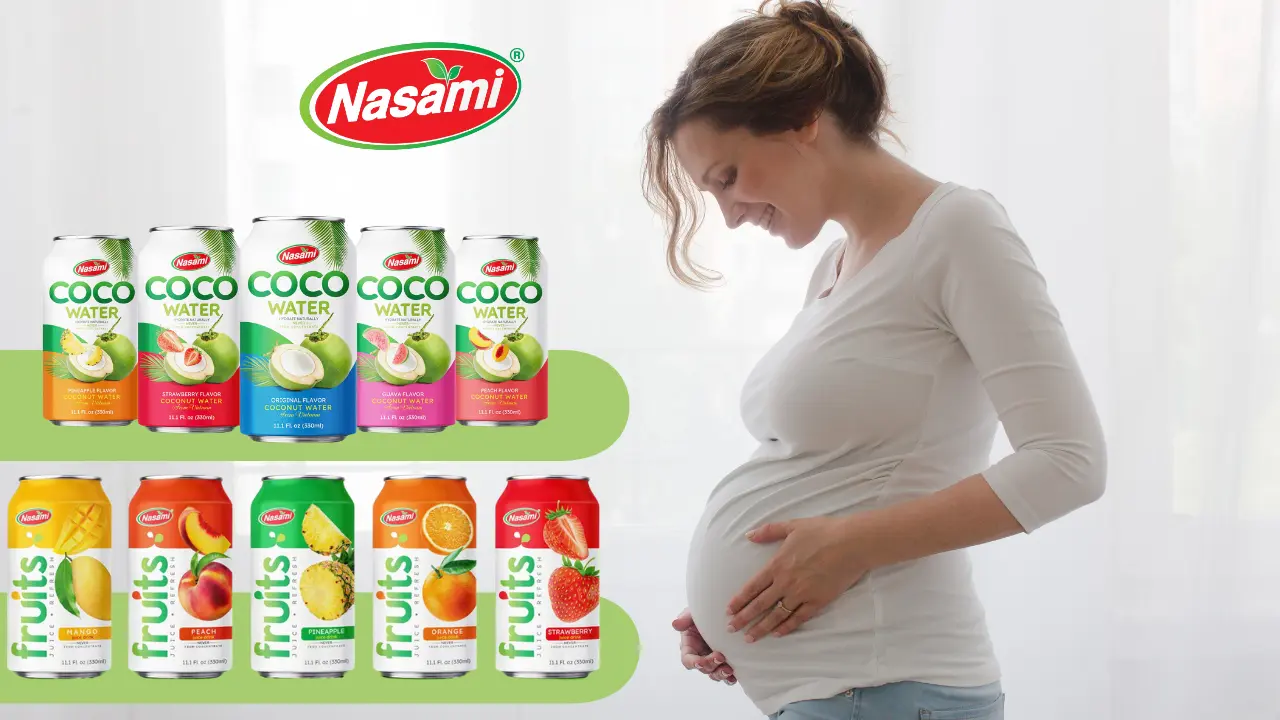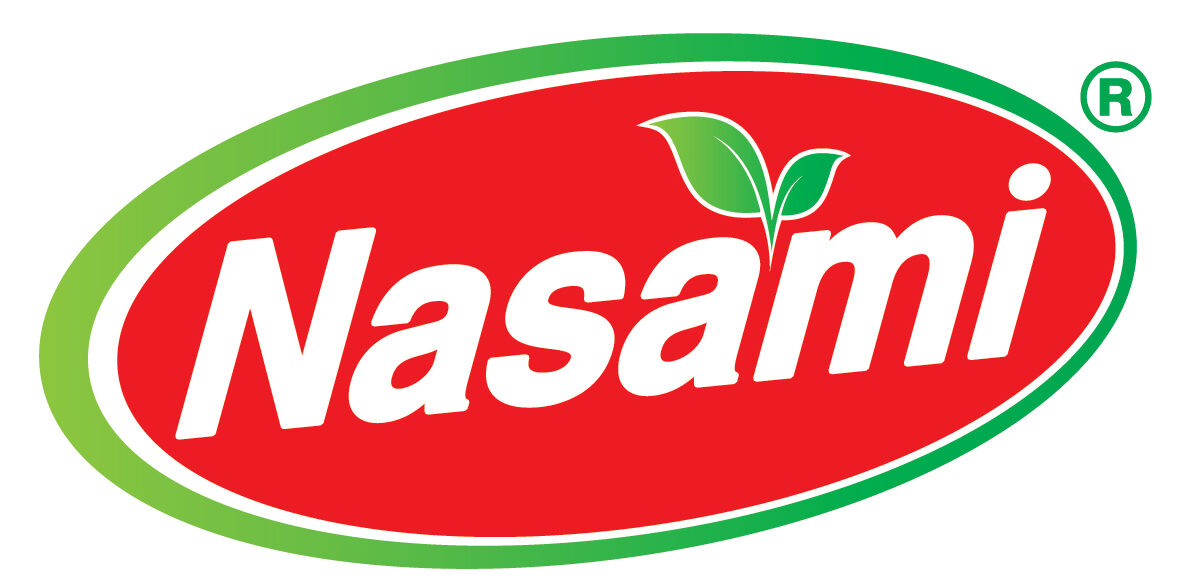Is coconut water safe to drink during pregnancy? In recent years, coconut water has emerged as a popular health beverage, celebrated for its hydrating properties and rich nutrient profile. Often referred to as “nature’s sports drink” it is lauded for its high electrolyte content and natural sweetness. As its popularity grows, many expecting mothers are curious about the safety and benefits of incorporating coconut water into their diets during pregnancy.
Table of Content
ToggleDiscussing the safety of coconut water during pregnancy is crucial for several reasons. Pregnant women are particularly cautious about their dietary choices, as they must consider the well-being of both themselves and their unborn child. With the rising trend of health-conscious eating and drinking, understanding the potential impacts of coconut water is essential for making informed decisions.
Health Benefits of Coconut Water
Hydration and Electrolyte Balance
One of the most celebrated benefits of coconut water is its exceptional hydrating properties. During pregnancy, staying properly hydrated is crucial for both the mother and the developing baby. Coconut water is a natural source of electrolytes such as potassium, sodium, and magnesium, which play a vital role in maintaining fluid balance and preventing dehydration. These electrolytes help to replenish the body’s stores, especially during hot weather or after physical exertion, making coconut water a refreshing and effective way to stay hydrated.
Potential Benefits for Digestion
Pregnancy often brings about various digestive challenges, such as constipation or bloating. Coconut water may offer some relief in these areas. It contains bioactive enzymes like amylase, which can aid in digestion and promote a healthy gut. Additionally, its high water content can help prevent constipation by adding moisture to the digestive tract, thereby facilitating smoother bowel movements. However, it’s important to consider that individual responses may vary, and it’s best to consult with a healthcare provider for personalized advice.
Other Nutritional Benefits – Is coconut water safe to drink during pregnancy
In addition to its hydrating properties, coconut water is packed with essential nutrients. It is a good source of potassium, which supports healthy heart function and helps regulate blood pressure. It also contains calcium, which is crucial for the development of the baby’s bones and teeth. These nutrients are beneficial during pregnancy, as they contribute to overall health and well-being.
While coconut water should not replace other sources of these nutrients, it can be a valuable addition to a balanced diet. Coconut water offers several health benefits that can support a healthy pregnancy, provided it is consumed in moderation and as part of a well-rounded diet.
Is Coconut Water Safe During Pregnancy?

General Safety Considerations
For most pregnant women, coconut water is generally safe to drink when consumed in moderation. It is a natural beverage that doesn’t pose significant risks if it is part of a balanced diet. However, it’s essential to ensure that the coconut water is sourced from reputable brands to avoid any potential contamination or added chemicals. Pregnant women should always opt for fresh, pure coconut water without added sugars or artificial preservatives.
Potential Benefits for Pregnant Women
Coconut water can offer several benefits during pregnancy. Its high electrolyte content helps maintain hydration and electrolyte balance, which is particularly important as the body undergoes various changes. The potassium in coconut water supports cardiovascular health and can help manage blood pressure levels, while the calcium contributes to the development of the baby’s bones and teeth. These benefits make coconut water a potentially valuable addition to a pregnant woman’s diet.
Common Concerns and Considerations
Despite its benefits, there are a few concerns to keep in mind. Some commercial coconut waters contain added sugars or preservatives, which can increase calorie intake and potentially impact overall health. It is important to choose coconut water that is free from these additives to avoid unnecessary sugar consumption. Additionally, while coconut water is low in calories, excessive intake could contribute to an imbalance in the diet.
Moderation is key, and it is advisable to discuss dietary choices with a healthcare provider to ensure that coconut water fits well within a healthy pregnancy diet. Coconut water can be a refreshing and nutritious option during pregnancy, provided it is consumed mindfully and as part of a varied and balanced diet.
Expert Opinions and Research
Summary of Relevant Scientific Studies and Expert Recommendations
Scientific research on coconut water specifically in the context of pregnancy is somewhat limited. However, several studies have highlighted the general health benefits of coconut water due to its rich electrolyte profile and hydration properties. For instance, research has demonstrated that coconut water effectively replenishes electrolytes and can be beneficial in managing mild dehydration and electrolyte imbalances. These properties are advantageous during pregnancy when maintaining proper hydration and mineral balance is crucial.
Expert recommendations generally align with these findings, suggesting that coconut water can be a safe and beneficial addition to the diet of pregnant women. Many nutritionists and health experts acknowledge the advantages of coconut water, particularly its natural composition and nutrient density. They recommend choosing coconut water that is free from added sugars and preservatives to maximize its benefits.
Opinions from Healthcare Professionals
Healthcare professionals typically view coconut water as a safe beverage choice during pregnancy, provided it is consumed in moderation. Obstetricians and dietitians often emphasize the importance of a balanced diet and the inclusion of a variety of fluids to meet hydration needs. They appreciate coconut water for its natural electrolyte content and its potential to support hydration and nutrient balance.
However, healthcare providers also advise caution regarding overconsumption. They note that while coconut water is beneficial, it should not replace other essential dietary components or fluids. Pregnant women should ensure that their overall diet is well-rounded and includes a range of nutrients necessary for both maternal and fetal health.
While there is a positive consensus among experts regarding the safety and benefits of coconut water during pregnancy, it is recommended to consume it as part of a balanced and varied diet. Consulting with a healthcare provider can provide personalized guidance based on individual health needs and dietary preferences.
Potential Risks and Side Effects

Possible Adverse Effects or Reactions
While coconut water is generally safe for most pregnant women, there are a few potential risks and side effects to be aware of. Some individuals might experience mild gastrointestinal issues, such as bloating or stomach cramps, particularly if they consume it in large quantities. Coconut water’s natural laxative effect can also contribute to loose stools if consumed excessively. It’s advisable to monitor how your body responds and adjust consumption accordingly.
Considerations for Women with Specific Health Conditions or Dietary Restrictions
Pregnant women with certain health conditions or dietary restrictions should exercise caution. For instance, women with diabetes or those managing gestational diabetes need to be mindful of coconut water’s natural sugar content, which could impact blood sugar levels.
In such cases, consulting with a healthcare provider for personalized advice is crucial. Additionally, those with kidney issues or high potassium levels should be cautious, as coconut water is rich in potassium and excessive intake could exacerbate these conditions.
How to Choose High-Quality Coconut Water
Selecting high-quality coconut water is essential to maximize its benefits and avoid potential drawbacks. Opt for pure coconut water with no added sugars, artificial flavors, or preservatives. Check the label to ensure it is made from 100% coconut water and preferably from fresh, young coconuts. Ideally, choose products that are minimally processed and have no added chemicals. Also, consider brands that use environmentally friendly packaging and transparent sourcing practices.
Coconut water can be a healthy choice during pregnancy, it is important to be aware of potential side effects and make informed choices based on individual health needs and dietary restrictions. Choosing high-quality, pure coconut water and consuming it in moderation will help minimize risks and maximize its benefits.
How Much Coconut Water is Safe to Drink?
Recommended Intake and Moderation
When it comes to consuming coconut water during pregnancy, moderation is key. Generally, a safe amount is around 1 to 2 cups (240 to 480 milliliters) per day. This amount allows you to enjoy the benefits of coconut water, such as hydration and electrolyte balance, without overconsuming calories or nutrients. Drinking more than this could potentially lead to an imbalance in your diet or gastrointestinal discomfort. It’s important to listen to your body and adjust your intake based on how you feel.
Balancing Coconut Water with Other Fluids and Nutrients
While coconut water is a nutritious beverage, it should not be the sole source of hydration. It’s crucial to balance it with other fluids, such as plain water, herbal teas, and milk, to ensure you meet your overall hydration needs. Additionally, a well-rounded diet that includes a variety of foods will provide a broader range of nutrients essential for pregnancy. Coconut water can be a part of this balanced approach, but it should complement, not replace, other nutrient-rich foods and beverages.
Enjoying coconut water in moderation—typically 1 to 2 cups per day—can be a healthy addition to your pregnancy diet. Ensure it is part of a balanced fluid intake and varied diet to support overall health and well-being throughout your pregnancy.
Alternatives to Coconut Water
Other Safe Hydration Options During Pregnancy
While coconut water can be a refreshing and beneficial choice, there are several other safe hydration options available during pregnancy. Plain water remains the best and most essential option for maintaining overall hydration. It is calorie-free and vital for supporting various bodily functions, including digestion and circulation.
Additionally, natural herbal teas, such as ginger or peppermint tea, can be soothing and provide extra hydration. These teas are generally safe during pregnancy and can also help alleviate common pregnancy-related symptoms, like nausea or indigestion.

Comparison with Other Beverages
When comparing coconut water to other beverages, each option has its own set of benefits and considerations.
- Water: The most straightforward and effective choice for hydration, water has no calories or sugars and supports all bodily functions essential for a healthy pregnancy. It is the best choice for meeting daily fluid needs and is crucial for overall health.
- Herbal Teas: Herbal teas can be a great alternative to coconut water. They often provide additional benefits, such as soothing effects or relief from nausea, and are typically low in calories. However, it’s important to ensure that any herbal tea consumed is pregnancy-safe and free from ingredients that might cause adverse effects.
- Milk: Milk is another alternative that offers additional nutritional benefits, including calcium and protein, which are important for both maternal health and fetal development. It can be a good complement to coconut water, though it is higher in calories and should be consumed in moderation.
- Juice: Fruit juice can be beneficial for pregnant women by providing essential vitamins like vitamin C and folate, which support immune health and fetal development. It also helps with hydration. However, it’s best to consume juice in moderation and choose options that are fresh or pasteurized to avoid excess sugar and contamination.
While coconut water can be a beneficial part of a pregnancy diet, it is important to consider other hydration options. Water remains the primary choice for meeting hydration needs, with herbal teas, fruit juice and milk serving as complementary options. Each beverage has its own benefits and should be chosen based on personal preferences and dietary needs.
Tips for Consuming Coconut Water Safely
Choosing Natural and Additive-Free Coconut Water
To ensure you are consuming coconut water safely during pregnancy, it’s important to choose products that are natural and free from additives. Look for coconut water labeled as “100% pure coconut water” with no added sugars, preservatives, or artificial flavors. Opt for brands that use minimal processing and are transparent about their sourcing practices. If possible, select coconut water that is organic or comes from reputable, well-reviewed brands to avoid potential contaminants and ensure quality.
How to Incorporate It into a Balanced Diet
Incorporating coconut water into your diet should be done in a way that complements a balanced and varied intake of fluids and nutrients. Aim to drink 1 to 2 cups of coconut water per day, and use it as part of a broader hydration strategy that includes plenty of plain water and other healthy beverages. Coconut water can be enjoyed on its own or used in smoothies, mixed with fresh fruit juices, or as a base for refreshing beverages. Combining it with other nutrient-rich foods will help ensure you receive a well-rounded array of vitamins and minerals.
Signs to Watch for if There Are Any Adverse Reactions
While coconut water is generally safe, it’s essential to monitor how your body responds. Watch for any signs of adverse reactions such as gastrointestinal discomfort, bloating, or diarrhea, which may indicate sensitivity or overconsumption. If you experience any unusual symptoms, it’s advisable to reduce your intake and consult with your healthcare provider. Additionally, if you have any pre-existing health conditions or dietary restrictions, seek personalized advice from your doctor to ensure coconut water is suitable for you.
Consuming coconut water safely involves choosing high-quality, additive-free products, incorporating it thoughtfully into a balanced diet, and being attentive to any adverse reactions. By following these tips, you can enjoy the benefits of coconut water while supporting a healthy pregnancy.

Coconut water can be a safe and beneficial beverage choice during pregnancy when consumed in moderation. Its natural electrolytes and hydration properties make it a valuable addition to a pregnant woman’s diet, offering benefits such as improved hydration and support for electrolyte balance. However, it is important to choose high-quality, additive-free coconut water to avoid unnecessary sugars and preservatives.
When incorporating coconut water into your diet, aim for 1 to 2 cups per day and ensure it complements other essential fluids and nutrients. Always monitor your body’s response to coconut water and be attentive to any potential adverse effects. For those with specific health conditions or dietary restrictions, consulting with a healthcare provider is advisable to tailor recommendations to your individual needs. While coconut water can be a refreshing and nutritious part of your pregnancy diet, balancing it with other fluids and maintaining a varied diet will help support overall health and well-being throughout your pregnancy.
Get information about all products of Nasami Beverages.

